How to clean rusty tools – and smarten them up like new
It's almost impossible to avoid rust entirely on garden tools, so be sure to clean it off when it appears

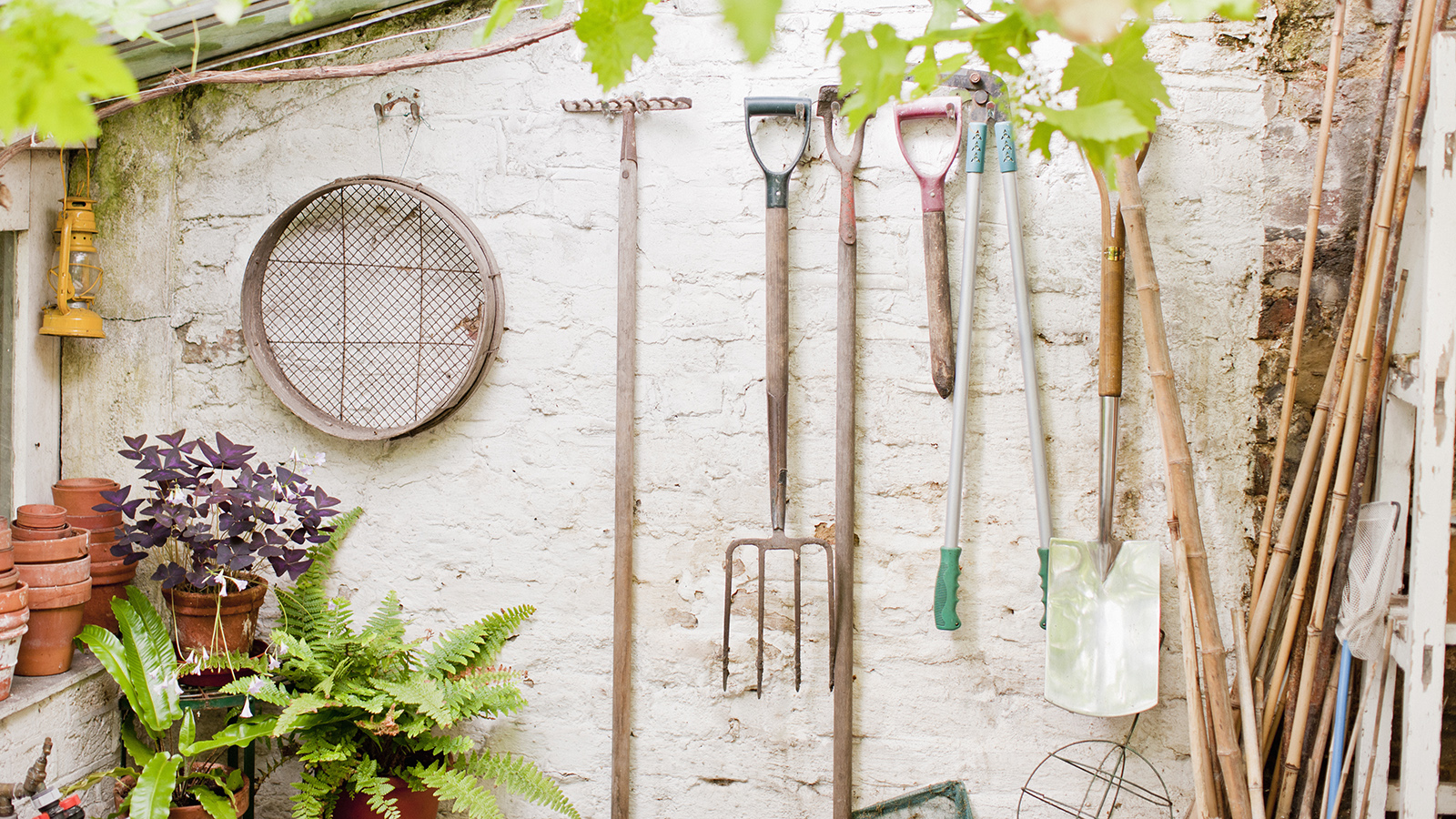
Design expertise in your inbox – from inspiring decorating ideas and beautiful celebrity homes to practical gardening advice and shopping round-ups.
You are now subscribed
Your newsletter sign-up was successful
Want to add more newsletters?

Twice a week
Homes&Gardens
The ultimate interior design resource from the world's leading experts - discover inspiring decorating ideas, color scheming know-how, garden inspiration and shopping expertise.

Once a week
In The Loop from Next In Design
Members of the Next in Design Circle will receive In the Loop, our weekly email filled with trade news, names to know and spotlight moments. Together we’re building a brighter design future.

Twice a week
Cucina
Whether you’re passionate about hosting exquisite dinners, experimenting with culinary trends, or perfecting your kitchen's design with timeless elegance and innovative functionality, this newsletter is here to inspire
Learning how to clean rusty tools is an important job. Good storage will slow the rusting process, but all steel tools are susceptible to rust. Keeping on top of how to clean garden tools, along with other maintenance, will help avoid it causing major issues.
'There's no reason why a decent set of garden tools shouldn't last for many years, even decades. I have a set of pruning shears which belonged to my grandfather,' says deputy gardens editor at Homes & Gardens, Teresa Conway.
'I'm not sure when he purchased them, but knowing how scrupulous he was about caring for his tools, he could have had them handed down to him. He always practiced good storage and regular cleaning, and it's still paying off,' she says.
We've brought together a few simple ways to clean rusty tools. Whatever approach you try, just remember to always wear eye protection and gloves.
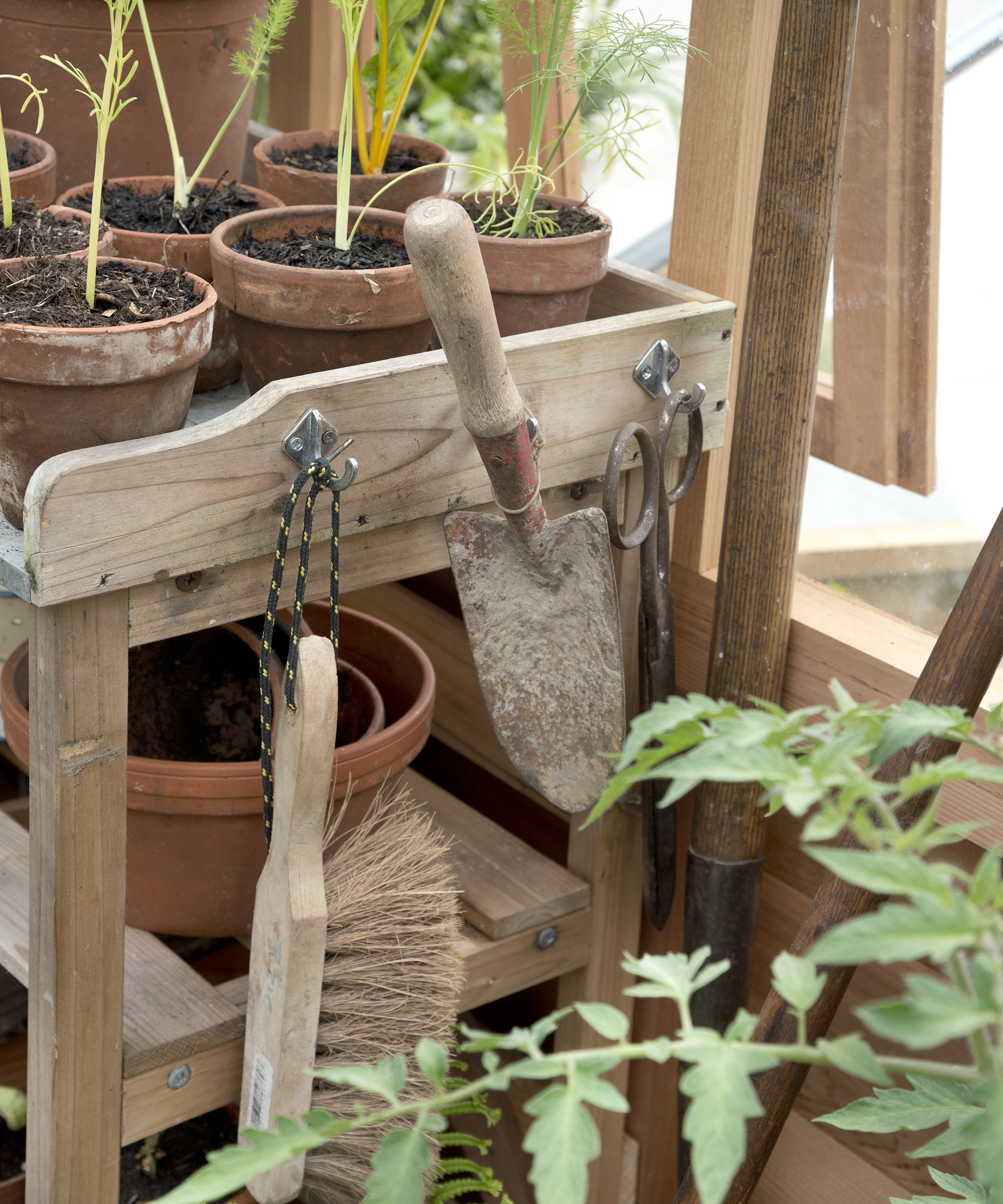

Teresa has been creating and editing a variety of rich garden content for over six years, across many brands including Homes & Gardens, Country Homes & Interiors and Living Etc. She was Deputy Editor on Gardeningetc.com as well as a judge on the panel at the prestigious Society of Garden Designers awards.
Why learn how to clean rusty tools?
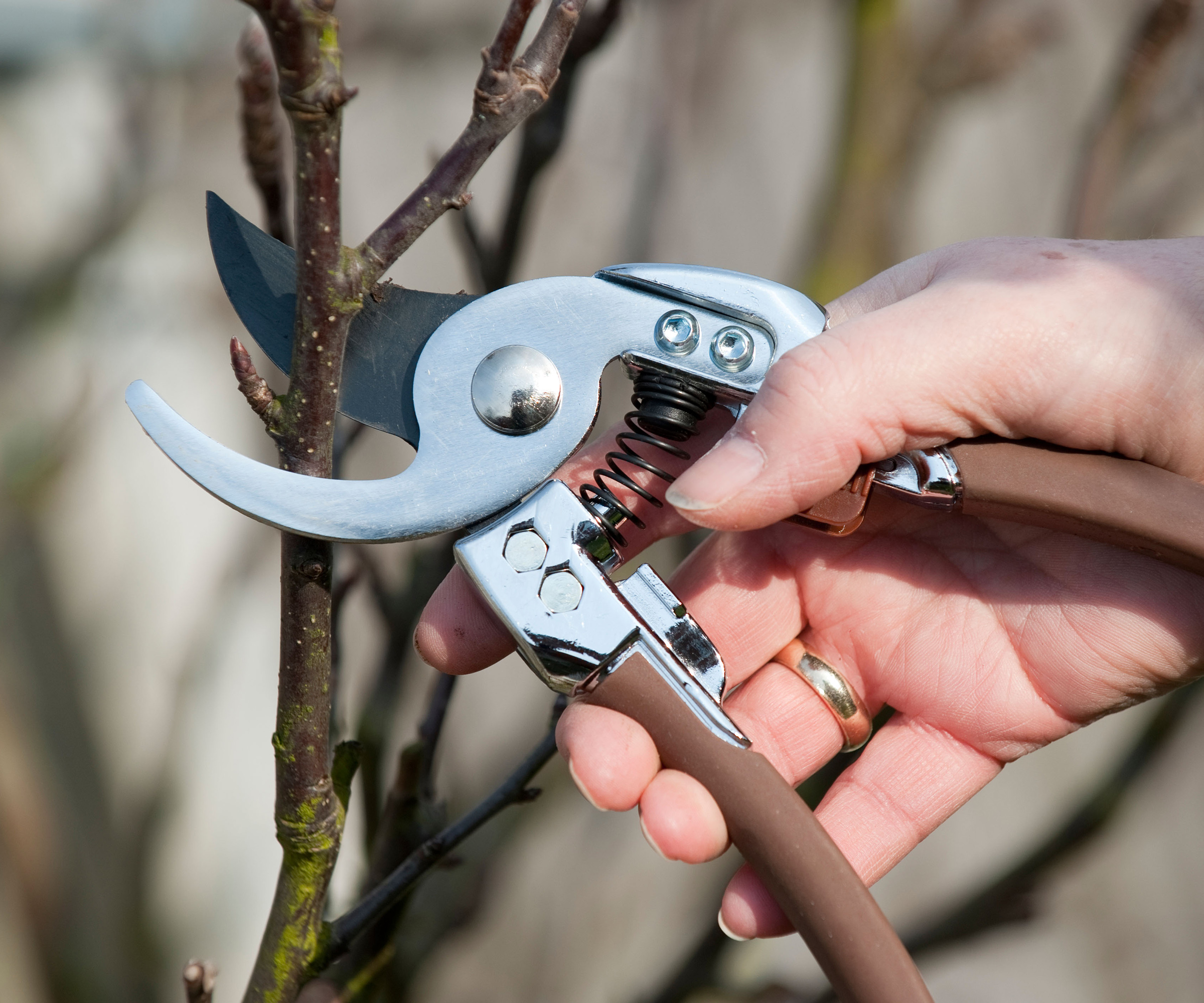
Keeping tools free of rust will be more beneficial for your plants
'Rusty garden tools will make any task more inefficient and lessen the lifespan of your tools,' explains expert gardener and Homes & Gardens content editor Drew Swainston.
'For example, trying to use a rusty pair of tools to prune will make it much harder to actually cut than using a well looked-after pair of pruning shears or loppers. They are likely to be stiff and blunt and, as well as making you work much harder, will be causing damage to the plant,' says Drew.
'Any jagged and frayed cuts will be much more difficult to heal over and it leaves the plant susceptible to pests and diseases. So, for the health of you and your plants, keep your tools rust-free,' he urges.
Design expertise in your inbox – from inspiring decorating ideas and beautiful celebrity homes to practical gardening advice and shopping round-ups.
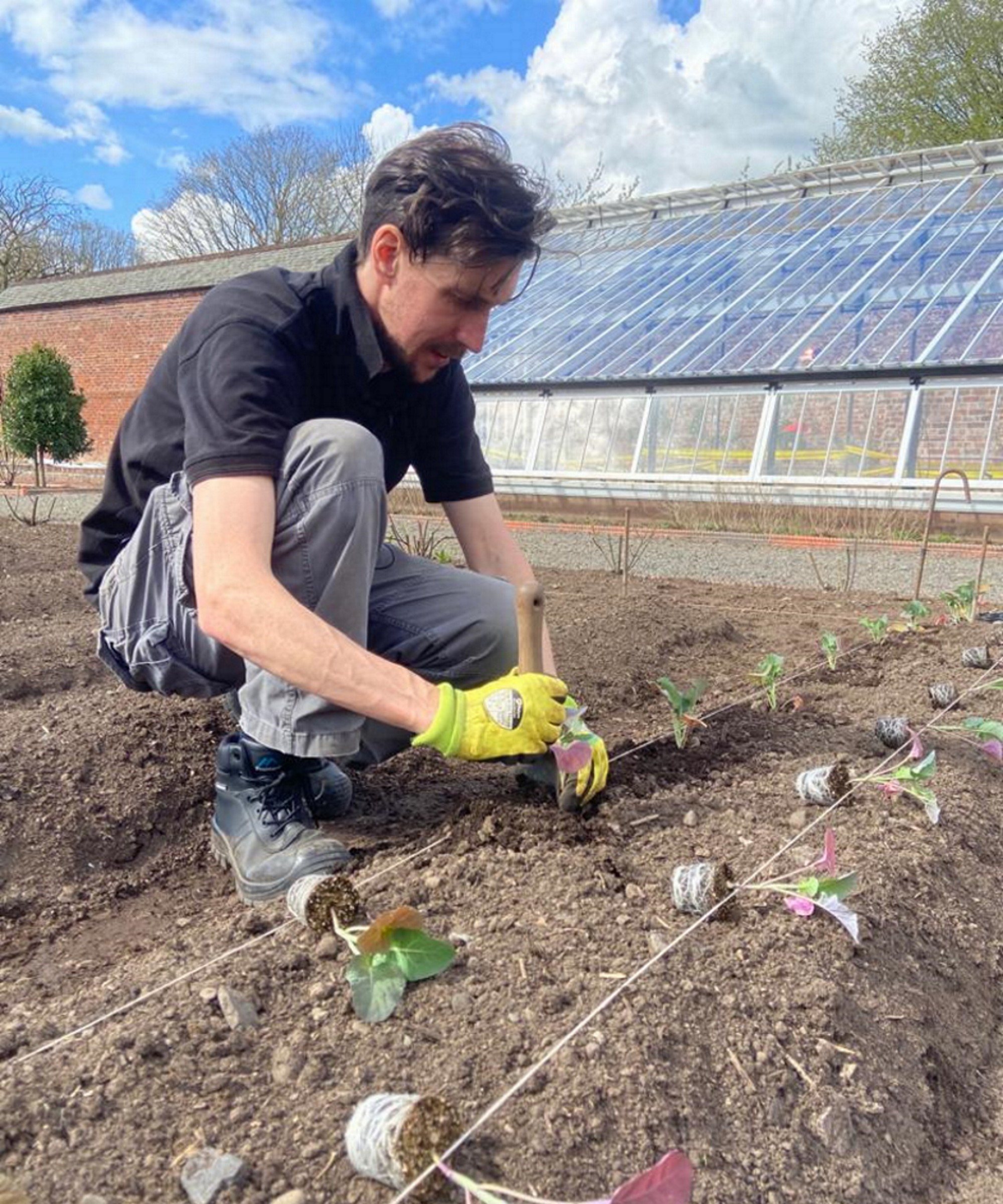
Drew qualified as a journalist and wrote for many websites and publications, before studying for a horticulture qualification. He worked as a professional gardener for several years, specializing in kitchen gardening. He's now bringing his expertise and passion to Homes & Gardens as a member of our team.
How to clean rusty tools by hand
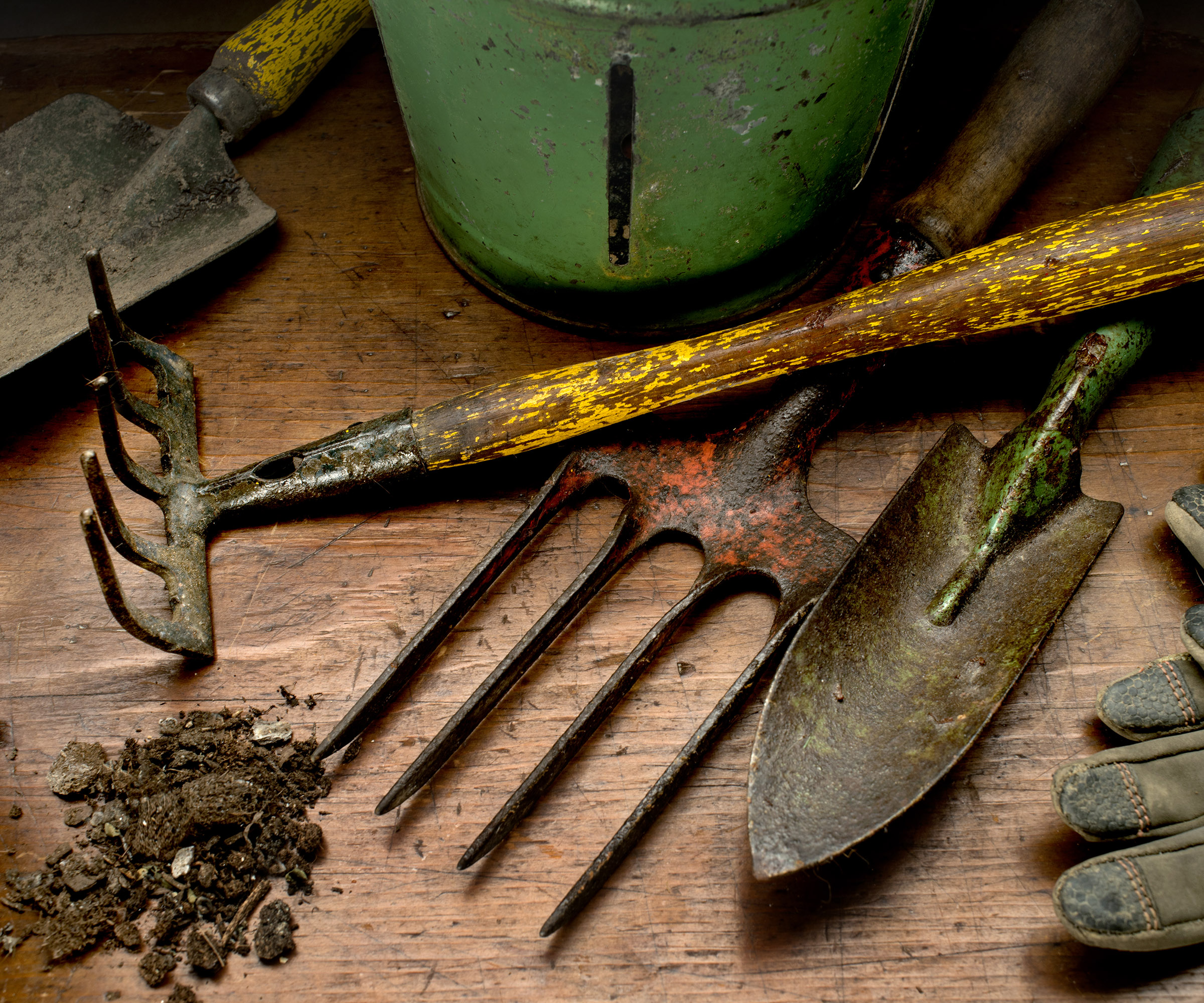
Wire brushes and sandpaper can be used to scrub rust from tools
To start, it's a good idea to wash off any loose dirt or grease using warm water and a drop of dish soap. Then, thoroughly dry the garden tools before tackling the rust. Wire brushes are best for removing rust from the tool's surface.
Brass brushes, for example, are great at removing light surface rust without damaging the metal itself. Heavily corroded tools will require a stiffer steel brush. This wire brush set for cleaning at Amazon contains both stainless steel and brass brushes.
Some people also use coarse sandpaper for tackling heavy rust, to the same effect. Any leftover specks can be treated with finer-grit sandpaper – using this should reduce the risk of damaging the metal itself.
After you've removed as much rust as possible, rinse the tools to get rid of any lingering debris. Then, ensure they're properly dry before you store garden tools away until they next need to be used.
Teresa recommends rubbing a small amount of oil to the metal surface before storing away. 'This creates a protective barrier against the elements,' she says.
How to clean rusty tools with vinegar

Soak metal tools in vinegar to remove rust
Chemical rust treatments are available on the market, but if you have an extensive tool collection, or are using them on tools such as shovels, which have a large surface area, this can be an expensive way to treat rust.
Vinegar is more eco-friendly, and a less expensive alternative to chemicals. Specific cleaning vinegar, like this good value cleaning vinegar at Walmart, is more acidic than standard white vinegar so will be more effective in cleaning away rust.
Here's how to use it for cleaning your tools:
- Give the tool you are looking to treat a quick clean down to remove debris.
- Grab a container that's large enough to allow the metal areas of the tool to be submerged in the vinegar. It's a good idea to create some form of support, so only the rusted parts of your tools are in contact with the liquid. This will prevent it from affecting any other materials, such as wooden handles.
- Leave your tools to soak in the vinegar for 24 hours or so. The process is quicker in a warmer environment. You'll notice the metal turning from a rusty brown to a black color.
- Remove the tool from the vinegar, rinse it off with warm water, and then dry it before storing it away. If you suspect your shed isn't water-tight then find out how to weatherproof a shed, to protect your tools.
How to clean rusty tools with chemicals
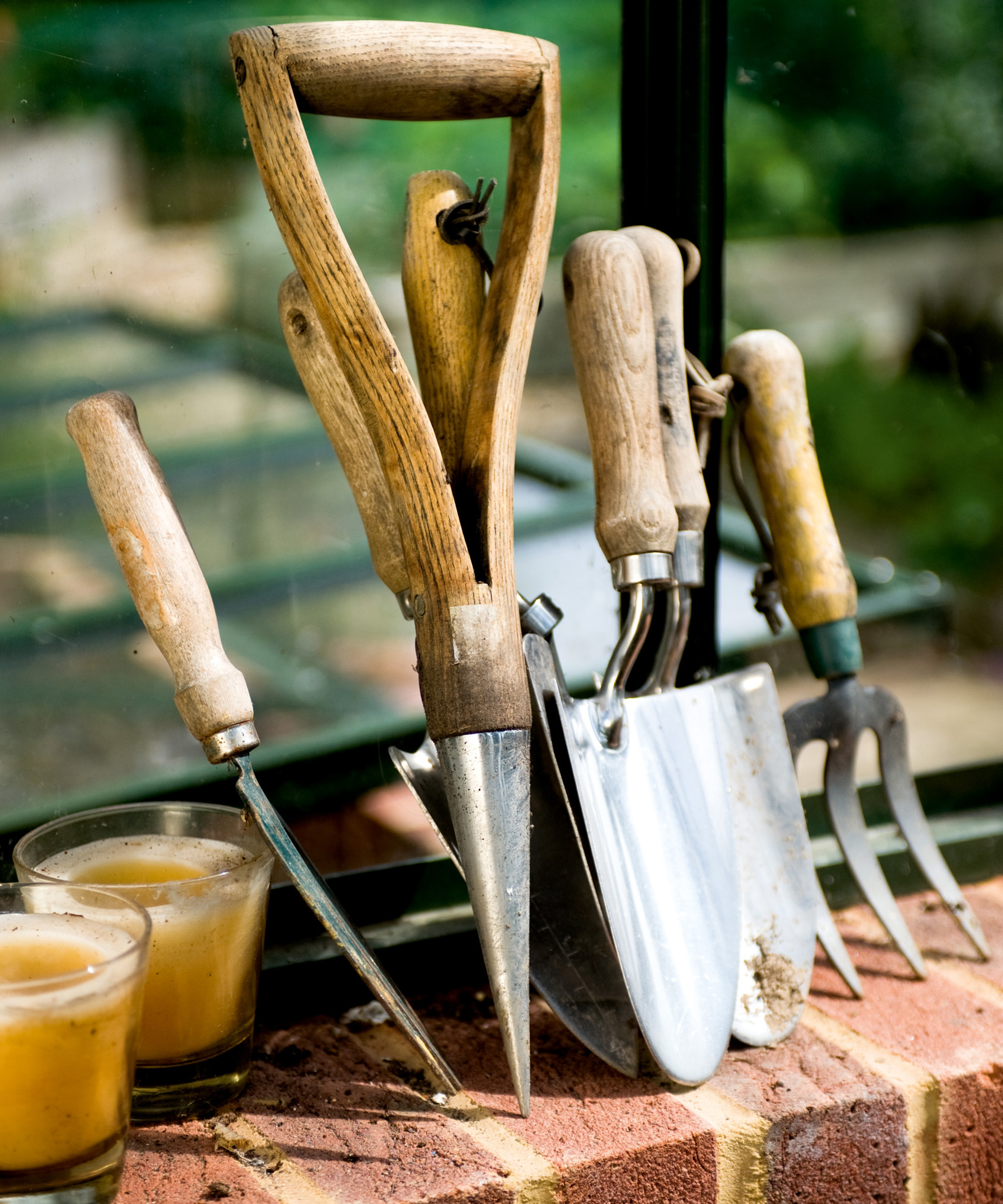
Rust-remover chemicals are available should you wish to use them on your garden tools
If you are set on using an off-the-shelf product, there are many commercial rust-removal solutions that are widely available. Just ensure you follow the instructions on the label to use them, wear protective clothing, and work in a well-ventilated area.
To keep your tools sparkling, you could invest in a multi-purpose solution for general maintenance, too. For instance Krud Kutter Must for Rust Spray at Walmart, removes rust and protects metal.
FAQs
How do you protect tools from rust?
Once you've learned how to clean rusty tools, the next step is to protect the metal. This is key to making your tools last as long as possible.
Add a light coating of oil after every clean to protect the metal from the elements and prevent further rusting.
The team at WD-40 suggests using their Multi-Use Product available at Amazon to form a protective, water displacing layer. The multi-functional spray will make sure that your tools are protected from rust, grime, and the elements, so you are free to enjoy your garden without worrying about the tools in your shed.
Be sure to keep your tools somewhere that's relatively dry. Putting tools away while they are damp from use, or keeping them in a leaky shed, can lead to rust.
Cleaning your rusty tools is a job that is made easier by doing it regularly.
Our outdoor kitchens also have plenty of metalware which might be prone to rusting. You can find out how to clean a grill, to keep this treasured backyard essential in good working order.

Holly started writing about gardening five years ago, and she is a regular contributor to Homes & Gardens. She has also written many gardening features for Woman & Home and Real Homes, too. She has previous experience as a professional gardener, where she helped to plant and maintain private gardens. Holly has also looked after allotment plots over the years and loves to grow her own flowers and veggies from seed. In her spare time, she enjoys visiting local gardens, botanical drawing, and tending to her ever-growing collection of houseplants.